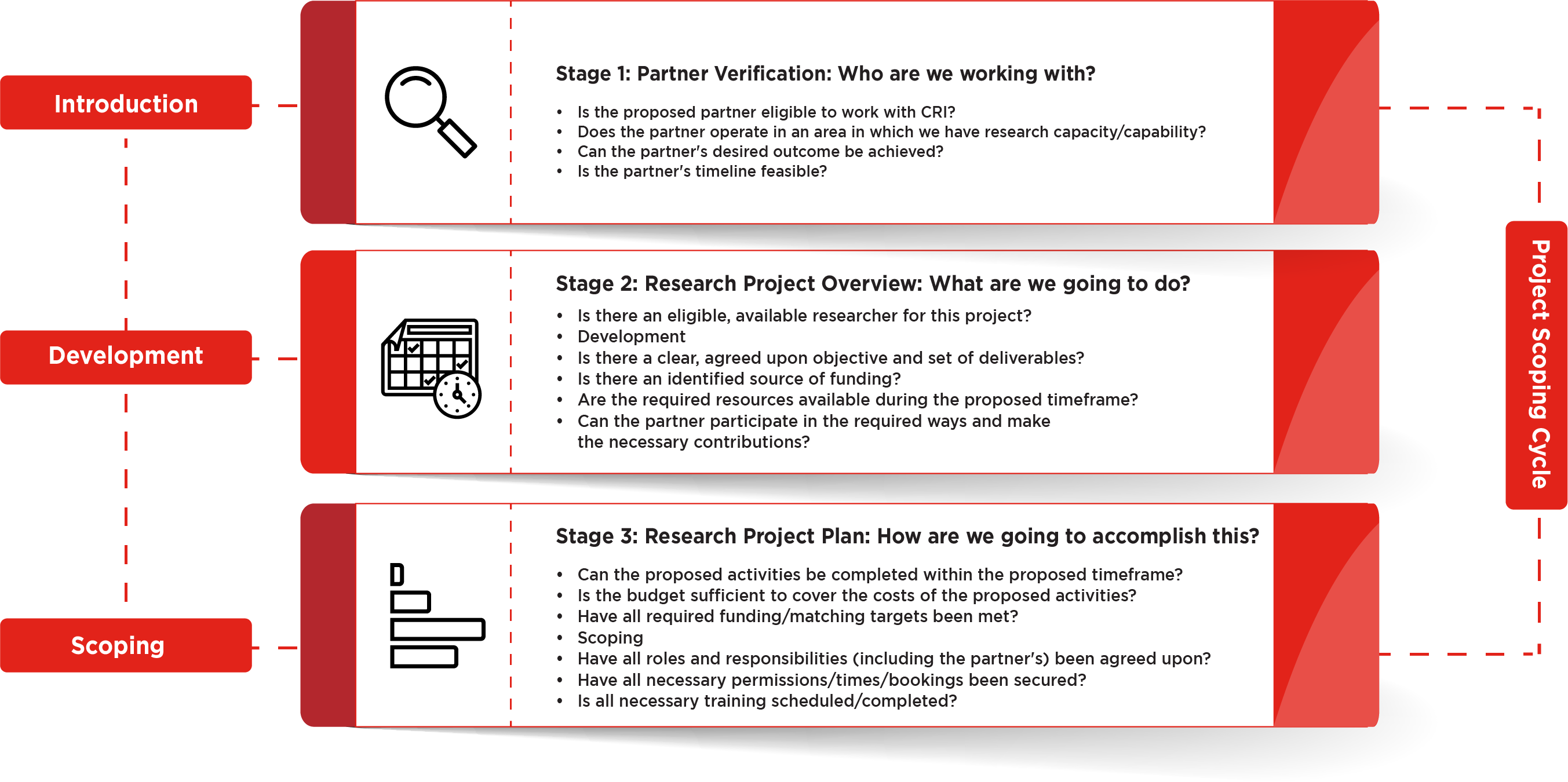Project Scoping
A very important step of any project is the scoping process. Determining the objectives of your research, the various logistical requirements (access to facilities, materials), the personnel who may need to be involved (other college researchers, external partners), and the timeline of your project can spare you from making potential mistakes later on.
CRI Research Facilitators assist with the Project Scoping Process and typically utilize a structured, stage-gate approach.
The 3 stages of the Project Scoping Process:
- Project Verification
- Research Project Overview
- Research Project Plan
Stage One – Project Verification.
Projects brought forward by a potential partner typically start here. At this stage, these are the questions that need to be addressed:
- Is the proposed partner eligible to work with the college?
- Does the partner operate in an area in which we have research capacity/capability?
- Can the partner’s desired research outcome be achieved?
- Is the partner’s timeline feasible?
Stage Two – Research Project Overview.
Projects brought forward by college researchers typically begin at this stage, and CRI might ask you the following questions:
- Do you have the eligibility, availability, and expertise to serve as the lead (Principal Investigator) on the project?
- Alternatively, if a partner approaches the college with a project idea, CRI would identify a potential researcher.
- Is there a clear, agreed upon objective and set of deliverables?
- Is there an identified source of funding?
- Are the required resources (e.g. facilities, personnel) available during the proposed time frame?
- Can the partner participate in the required ways and make necessary contributions (financial or in-kind)?
Stage 3 – the Research Project Plan
Finally, in this stage, the project plan is articulated. You will be asked to outline how the project is going to be accomplished.
- Can the proposed activities be completed within the proposed time frame?
- Is the budget sufficient to cover the cost of the proposed activities?
Have all the required funding/matching targets been met? - Have all the roles and responsibilities been agreed on?
- Have there been discussions related to data management?
- Has ownership of arising Intellectual Property been determined?
- Have all necessary permissions/bookings been secured?
- Is all necessary training scheduled or completed?

This is simply a demonstration of Project Scoping. The Centre for Research & Innovation can provide guidance related to your unique project.

